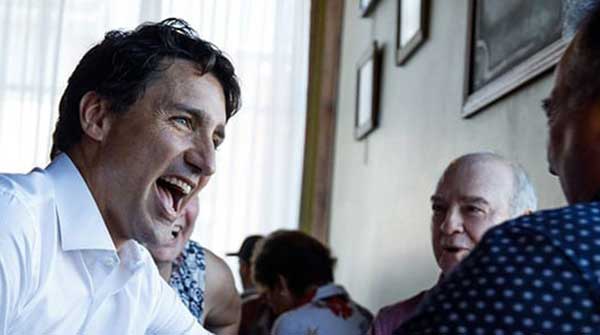 If you’re a political aficionado who was hoping for a summer respite, last week blew away any such hopes. With the first Canadian federal election debate and the inaugural Republican faceoff on the same evening, the temperature shot up by several degrees.
If you’re a political aficionado who was hoping for a summer respite, last week blew away any such hopes. With the first Canadian federal election debate and the inaugural Republican faceoff on the same evening, the temperature shot up by several degrees.
Personally, I was disappointed by the Canadian offering. And although I hung in for the first hour, my decisive wife bailed after a mere 10 minutes, no longer able to stand the repetitive soundbites and rehearsed attack lines. To be fair to Paul Wells of Macleans – the debate’s host – I’m not sure what I was expecting. But I was hoping for something a bit different, something more probing.
So, at the halfway mark I switched to the Republican extravaganza, which was just then getting underway with 10 candidates on deck. And it was very different.
The host network, Fox News, may be conservative in orientation, but anyone expecting two hours of softball questions and easy set-ups had a major surprise in store. To quote Frank Bruni of the very liberal New York Times, “This was an inquisition.”
To my mind, the questions put by Fox’s panel were fair, albeit deliberately framed to test each candidate at an ostensibly weak point. Some of them did quite well, others less so. But as Fox’s Megyn Kelly later put it when defending her particularly controversial back-and-forth with Donald Trump, “If you can’t get past me, how are you going to handle Vladimir Putin?”
Although it probably won’t help him very much, one of the better performances came from New Jersey Governor Chris Christie, who seemed to command the screen when the focus was on him. Where some others gave the impression of shrinking back a little, Christie filled the space – and no, it wasn’t just a matter of his large physical bulk.
As for why it may not help him much, Christie’s political problem can best be described as that of a man out of his time. He’s what 50 years ago would have been called a Rockefeller Republican, but the party has moved substantially to the right since then and its heart yearns for something other than what he has to offer. Meanwhile, the Democratic centre has shifted significantly left, thereby producing the polarised politics that currently characterise the American scene.
Mind you, Canadians who are tempted to feel smug should consider parallel developments in this country. For one thing, today’s federal Conservatives are more ideologically homogenous than the party they replaced. And while it’s not so long ago that the Liberals included a measurable pro-life caucus, now anyone who countenances any restriction of any sort on abortion is automatically ineligible to be a candidate for the party.
Nor is this trend towards polarisation exclusively a North American phenomenon. In the UK’s current Labour leadership race, the frontrunner is apparently Jeremy Corbyn, a left-wing MP with a yen to bring back the old days of large scale nationalisations. Effectively, Tony Blair’s New Labour would be buried and paved over in a flight back to the past, regardless of the historical fact that, when last tried, left-wing Labour produced 18 consecutive years of Tory rule.
There are many potential explanations for this trend, ranging all the way from reactions to economic and social turbulence to the marshalling power of social media. But let me touch on a couple of relatively mundane factors.
One is that the heart wants what it wants, and while it can be temporarily bought off, the underlying yearning doesn’t go away. For example, after losing four consecutive elections while running well to the left, UK Labour was prepared to submit to a makeover in return for power. However, when the power eventually evanesced, the left-wing yearning was still there, nourished by virtue of having been repressed.
The other factor has to do with the extent to which politics has become recreational in the sense of being an affirmative expression of personal identity. In a milieu where the fundamentals are taken for granted – that the electricity will always come on when you flick the switch, that there’ll be gas for the car, that the supermarket shelves will be stocked, and so on – it’s easy to lose connection with the gritty practicalities of what makes a modern society function.
Reality, after all, can be boring.
Pat Murphy casts a history buff’s eye at the goings-on in our world. Never cynical – well perhaps a little bit.
The views, opinions and positions expressed by columnists and contributors are the author’s alone. They do not inherently or expressly reflect the views, opinions and/or positions of our publication.


